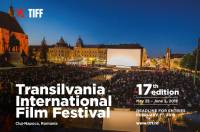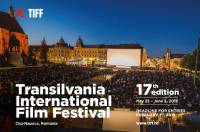The Transilvania International Film Festival celebrates the centennial of Romania’s union by showcasing a collection of works representative of Romanian cinema’s extremely diverse past. Popular films or rare gems from the communist period, genre productions, historical or contemporary dramas, the seven titles in the Romania 100 section are sure to activate both nostalgia in those who grew up in that era and curiosity in the younger generation, who perhaps know only of the iconic stars of these films.
Răscoala / The Uprising (1965), for which Mircea Mureșan received the debut prize at the 20th edition of Cannes, was also Romania’s first proposal for the foreign language Oscar. A reference title for the most popular genre of Romanian film, the historic drama, the film delves into rural life during the first decade of the 20th century and reconstitutes an essential historic moment, the 1907 peasant uprising, using a cast of thousands. Five million have seen this adaptation of Liviu Rebreanu’s eponymous novel.
At the opposite end of the spectrum, Gaudeamus Igitur (1965) is set in its own time and shot right in Cluj-Napoca by director Gheorghe Vitanidis. The story of young high school graduates with hopes of going to university in one of Romania’s biggest academic centers is an opportunity to see what Cluj looked like in the 1960s, as well as a chance to see Anna Szeles, the recipient of a lifetime award at TIFF this year, in one of her less-known films.
A surprise for those interested in cinematic collectors’ items is Șapte zile / Seven Days (1973), the debut crime thriller by Mircea Veroiu, who would come to be known for his adaptations of literary classics. Mircea Albulescu, Irina Petrescu, and Victor Rebengiuc play the anchors of a love triangle caught in an industrial espionage intrigue. The late Adrian Enescu, whose career was recognized at TIFF in 2013 with a lifetime award, signs his first film score here.
Explozia / Explosion (1973) by Mircea Drăgan, the late director of the B.D.series who passed away last year, is another genre film that was extremely popular in its time. This action movie is suspenseful and spectacular without resorting to any special effects, and is inspired by a true story: in 1971, a fire started on the Poseidon cargo ship risked triggering an explosion which would have devastated the city of Galați and destroyed its massive steel plant. The top-shelf cast is led by Gheorghe Dinică, who plays the anthological role of Gicu Salamandră.
Romantic comedies are represented in this selection by the restitution of one of the most popular films of the 1980s, Elefterie Voiculescu’s debut feature Fata Morgana (1981). While following the strictures of the era by being unavoidablymoralizing, the the film has at least three points of interest that shine through to today: an atypical male lead—a party animal, a ladies’ man, and an irresistible bad boy; the magnetic draw of its protagonists, who gave us one of the rare sex scenes in a communist era film—both elliptical and daring; and, last but not list, the pop hit La fereastră on the movie’s soundtrack, which is nostalgically downloaded to this day.
Two collectors’ items complete the program, both films about young people directed by filmmakers of different generations: Ultima noapte a copilăriei / The Last Night of Childhood (1966) by Cluj-based director Savel Stiopul and Muntele ascuns/ The Hidden Mountain(1974), Andrei Cătălin Băleanu’s debut feature. Both look into the psychological abyss of the adolescence, and both center on boys whose parents’ divorce forces them into maturity. Their special visual style and ciné-vérité register, combined with the cast of young, non-professional actors, brought a breath of fresh air in Romanian cinema at the time.
TIFF 2018 will also host Photo Historia, a unique exhibition of photos from the first decades of the 20th century. The copies exhibited at the Art Museum in Cluj offer a special perspective on the life of the Romanian peasants and relevant places in the country.
The best Bulgarian productions of the past two years and some of the top titles of Soviet cinema will be screened in the sections Focus Bulgaria and Back in the USSR at the 17th edition of the Transilvania International Film Festival. Both programs offer audiences remarkable discoveries, be it cult films of the 1980s or films recently recognized in international film festivals..
Focus Bulgaria proposes a selection made up of eight titles from the latest generation of Bulgarian auteurs, beginning with Stephan Komandarev’s Directions, selected at Cannes 2017 in the Un Certain Regard section. Echoing Iranian cinema and Jim Jarmusch’s cult film Night on Earth, this film offers an original perspective, imbued with sarcastic humor, on the dysfunctions of contemporary Bulgarian society—using night fares picked up by Sofia taxi drivers as its vehicle. Secrets and intimate details of private lives come to light in Ilian Djevelekov’s Omnipresent, the story of a man obsessively spying his family, friends, and employees on hidden cameras. The film, which received the FIPRESCI Prize at the Sofia film festival and the Golden Rose for Best Film at Varna, demonstrates that small guilty pleasures can lead to disastrous situations.
In Godless, a nurse sells the identities of her elderly patients on the black market. Ralitza Petrova’s debut feature captures the last crumbs of humanity in a devastated, corrupt, and hopeless landscape, and received the Golden Leopard at the 2016 Locarno film festival. The recipient of the same award in the Cineasti del Presente section in 2017, 3/4 is an intimate study on family and on life’s flaws and imperfections. Following the dysfunctional relationship between a father and his two children, the feature debut of Ilian Metev tells the delicately balanced story of one last summer spent in the family.
Rouzie Hassanova’s Radiogram also deals with a father-child connection: set in the 1970s, when Western music was considered a threat by Eastern Bloc regimes, the story follows the adventures of a parent who wants to share the joys of rock-n-roll with his son. Inspired by the director’s personal memories, the film received an audience award in Sofia this year. Konstantin Bojanov’s Light Thereafter explores love and liberation through art by looking backwards at the initiation voyage of misunderstood young man in love with painting, looking for his idol, and eventually finding himself. The film was awarded for best cinematography at the Golden Rose in Varna in 2017.
Two of the best Bulgarian documentaries of recent years, Tonislav Hristov’s The Good Postman and Trzvetan Dragnev’s Village People, deal with everyday life in contemporary rural communities. The former follows the politics of a border town in which the postman decides to run for office on a platform dealing with migrants and refugees. The latter looks tenderly at the fears, joys, hopes, and obsessions of ordinary people of no readily apparent importance.
Back in the USSR is an opportunity to see on a big screen newly restored digital copies of films that were box office successes in the 1980s not only in Romania, but in the entire socialist bloc. Sergey Solovev’s ASSA (1987) is a historic rock manifesto that influenced entire generations. Anti-system stories combine with experimental sequences, an underground music sound track, and a grandiose promotion campaign turned this film into a box office juggernaut in the region— so much so that two years after the film premiered, the protagonists attracted an audience of 70,000 in the Luzhniki stadium in Moscow. Another year later, the USSR began falling apart.
Elem Klimov’s 1985 Come and See is considered to be one of the most devastating works in the history of cinema. It took eight year for the production to be approved by the Soviet authorities— even though on the surface the subject is the resistance against German forces. The film was immensely successful in its time, and the recently restored digital version was awarded last year in Venice. Another Soviet cult film that enjoyed international recognition, as well as tremendous popularity in communist Romania, is Vladimir Menshov’s Moscow Does Not Believe In Tears. Winner of the Best Foreign Film Oscar in 1981, it follows the dreams, wishes, and disappointments of three young workers.
Another film dear to even those among us who were very young in the 1980s is Eldar Riazanov’s 1982 Cannes premiere Station For Two, a bitter-sweet love story between a railway station restaurant waitress, played by the legendary Lyudmila Gurchenko, and a pianist unjustly accused of a crime. And another nostalgic return to the early days of break dance is featured in Karen Shakhnazarov’s 1986 Courier, a teen movie in which an unconventional young man gets a job as a courier after failing a university admission exam. The film speaks to the generation gap, the impeding fall of the Soviet empire, and the waning of socialist values among the youngsters.
These five titles in the Back to the USSR section were all produced by the gigantic Mosfilm studio; they are joined in the section by a film produced by the Dovjenko studios, Roman Balayan’s 1982
Flights in Dreams and in Reality, in which a 40th birthday throws the protagonist, masterfully interpreted by Oleg Yankovskiy, into a middle age crisis. A constant discomfort and discontent pushes him to do extravagant and only apparently amusing gestures that hurt those around him. This is precisely the reason the film became popular: it went against the idealized image of the Soviet man.
ZLIN: The world’s oldest and largest children’s film festival, the 58th Zlin Film Festival (25 May – 2 June 2018), will screen eight films in its children’s competition and another eight films in the youth competition.
ZAGREB: The 65th Pula Film Festival, running 14-22 July 2018 in the Adriatic seaside town, will have 10 Croatian majority films and another seven Croatian minority films in the main competition of Croatian films.
New Europe Film Sales Picks up HBO Europe’s Love Express. The Disappearance of Walerian Borowczyk
Poland 22-05-2018WARSAW: Jan Naszewski’s sales outlet New Europe Film Sales has signed a world sales deal for the documentary Love Express. The Disappearance of Walerian Borowczyk by Kuba Mikurda, which explores the career of the cult and controversial filmmaker Walerian Borowczyk.
FNE teamed up with FIPRESCI critics attending the Cannes Film Festival to rate the films in the Main Competition, Un Certain Regard, Directors' Fortnight and Critics Week, giving the films 1, 2, 3, 4 or 5 stars. 5 is the best and 1 is the worst. The ratings give an overview of critics’ opinions from a large number of countries and provide insights into what critics in many different countries think about the programme.
ANIMATED AND YOUNG AUDIENCE PRODUCTIONS FUNDED BY THE POLISH FILM INSITUTE IN THE 1st SESSION OF 2018:
PRAGUE: The showcase and forum of upcoming documentary films Docu Talents from the East, presented by Jihlava IDFF, is moving from Karlovy Vary IFF to the Sarajevo Film Festival.
PRAGUE: A new Czech-German film festival of documentary films, Elbe Dock, created in connection with the 12th edition of the Pavel Koutecky Award, is bringing contemporary Czech and German documentaries to two cities near the Czech-German border, Usti nad Labem and Dresden.



























